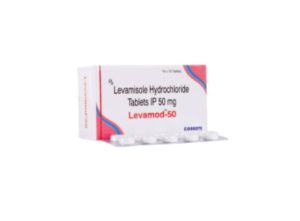
Here’s a complete review of Cefepime, a broad-spectrum antibiotic used for severe bacterial infections:
Description:
Cefepime is a fourth-generation cephalosporin antibiotic. It works by inhibiting bacterial cell wall synthesis, causing cell death. Cefepime has a broad spectrum of activity against both Gram-positive and Gram-negative bacteria, including organisms that are resistant to earlier generations of cephalosporins.
Brand Names:
- Maxipime
- Cefpim
- Cepime
- Fepime
- Cefmax
Available Forms & Strengths:
- Injection (IV/IM): Available in vials with different strengths, such as 500 mg, 1 g, 2 g.
Uses:
Cefepime is used to treat a wide range of severe bacterial infections, including:
- Pneumonia (including hospital-acquired or ventilator-associated)
- Urinary Tract Infections (complicated and uncomplicated)
- Febrile Neutropenia (as empirical therapy in patients with low white blood cells)
- Skin and Skin Structure Infections
- Intra-abdominal Infections
- Septicemia
- Complicated Infections caused by multi-resistant organisms
Side Effects:
Common side effects of Cefepime include:
- Gastrointestinal Issues: Nausea, vomiting, diarrhea
- Neurological Effects: Headache, confusion, and in severe cases, seizures (more common in patients with renal impairment)
- Allergic Reactions: Rash, pruritus, or anaphylaxis in rare cases
- Hematological Issues: Transient increases in liver enzymes, changes in blood counts such as neutropenia or thrombocytopenia
- Injection Site Reactions: Pain or swelling at the injection site
- Superinfections: Long-term use may lead to fungal infections or overgrowth of resistant bacteria, including Clostridium difficile-associated diarrhea (CDAD).
Dose:
- Adults: Common doses range from 1-2 grams every 8-12 hours, depending on the severity of the infection.
- Children (2 months – 16 years): Dosed based on body weight, typically 50 mg/kg every 8-12 hours.
- Renal Impairment: Dosage adjustments are required for patients with impaired kidney function.
Contraindications:
- Hypersensitivity to Cefepime or other cephalosporins.
- Patients with a history of immediate hypersensitivity reactions to penicillin or other beta-lactam antibiotics should use caution due to cross-reactivity risk.
Drug Interactions:
- Aminoglycosides: When used together, there may be an increased risk of nephrotoxicity (kidney damage).
- Diuretics (e.g., furosemide): May increase the risk of kidney damage when used together with Cefepime.
- Probenecid: Can increase Cefepime levels by reducing its excretion in the kidneys.
Warnings:
- Neurotoxicity: Cefepime may cause neurotoxic effects, such as confusion or seizures, particularly in patients with kidney problems. Dose adjustments are crucial for those with renal impairment.
- Clostridium difficile-associated diarrhea (CDAD): As with many antibiotics, Cefepime can lead to overgrowth of C. difficile, which can result in severe diarrhea and colitis.
- Superinfection: Prolonged use of Cefepime may result in fungal or bacterial superinfections.
- Renal Function Monitoring: In patients with kidney dysfunction, renal function should be monitored, and doses adjusted accordingly.
Special Considerations:
- Pregnancy: Classified as Category B (no evidence of risk in humans). Cefepime should only be used if clearly needed during pregnancy.
- Breastfeeding: It is excreted in low amounts in breast milk. Caution is advised when administered to nursing mothers.
Doctor Advised:
Always follow your doctor’s prescription regarding dosage and duration. Inform your healthcare provider about your complete medical history, especially kidney function, allergies, or any ongoing medications. If any severe side effects (like seizures or allergic reactions) occur, contact your doctor immediately.
Conclusion:
Cefepime is a powerful antibiotic used for serious bacterial infections, especially those resistant to other antibiotics. It’s especially useful in hospitals to treat patients with severe, life-threatening infections like pneumonia or septicemia. However, it should be used carefully, particularly in patients with kidney issues, and side effects such as neurotoxicity must be monitored closely.







